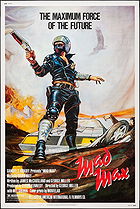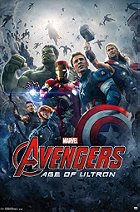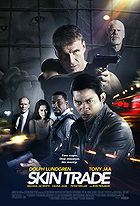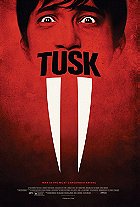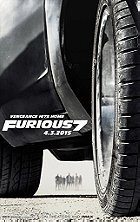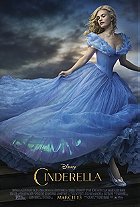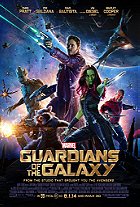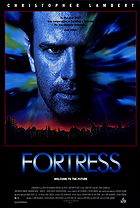Back in 2012, Pitch Perfect defied all rational expectations, turning a can't-win proposition of a Glee-inspired college comedy-cum-musical into pure gold. Fortunately, 2015's Pitch Perfect 2 pulls off a comparable miracle, overcoming the law of diminishing returns for a riotously funny follow-up that stands as a wonderful companion piece to its sleeper hit of a predecessor. Once again penned by Kay Cannon, though this time directed by Elizabeth Banks, Pitch Perfect 2 has a firm grasp on what worked for the original movie: quirky characters spouting witty dialogue, intercut with catchy, well-rehearsed a cappella musical performances. This is actually the funniest movie of 2015 so far, serving up several belly-laughs in the first five minutes alone. From the very beginning, it's clear Pitch Perfect 2 is a winner.

Following a performance in front of President Obama that goes haywire, the Barden Bellas are in disgrace, banned from domestic a cappella competitions. However, the girls are given a shot at redemption; they will be reinstated if they can win the World Championships in Copenhagen, a feat that has never been pulled off by an American team in history. In order to win, the Bellas face stiff competition in the form of Das Sound Machine, a leather-clad, supremely confident German a cappella troupe with a refined sound. As the Bellas work to improve themselves, Beca (Anna Kendrick) begins to pursue other interests, scoring an internship at a local record company that could help her fulfil her dream of being a music producer.
Pitch Perfect 2 takes the series to its next logical step, finding Beca and other girls approaching graduation while long-time Bella member Chloe (Brittany Snow) admits that she has purposely failed her exams multiple times to stay at the University and remain in the group. Beca's personal life is also probed further, as she maintains a relationship with Jesse (Skylar Astin) and feels out her record company internship. To be sure, the storytelling is all standard-order stuff, with a predictable narrative outcome from the outset, but it all works - it's so much fun that you barely notice the clichéd broad strokes, much less be bothered by them. Besides, there is some genuine pathos here, not to mention a strong sense of sisterhood that's achieved not through obvious "girl power" tropes but rather by developing distinct characters who feel like real friends. In fact, barely any time is spent observing the rehearsal process - Pitch Perfect 2 is mostly comprised of vignettes that develop the characters and provide a tonne of belly-laughs. Admittedly, the flick is a bit long in the tooth, running at a rather gargantuan 115 minutes, but this isn't a major issue.

Zippy and slick, Pitch Perfect 2 is actually funnier than the first movie, which might be attributable to having a woman at the helm. For a first-time director, Banks (who produced and had a supporting role in the 2012 film) is astonishingly assured, showing an amazing grasp of comic timing and pacing. Whereas a lot of American comedies like The Heat are notoriously undisciplined and full of overdone improvisation, Pitch Perfect 2 keeps the actors on a tight leash. This is a long movie, yeah, but only because there's a lot of story material to work through, not because performers spend five minutes on one joke. As for the soundtrack, Pitch Perfect 2 does a great job of upholding its predecessor's reputation - covers of songs like Miley Cyrus' "Wrecking Ball" are hugely enjoyable, while the finale features an original track entitled "Flashlight" that's guaranteed to rack up millions of hits on YouTube. One of the big highlights is a five-way a cappella showdown that manages to be both catchy and riotously funny, while the climax is a genuine show-stopper, topping the previous movie with seemingly little effort.
A lot of laughs are provided by the extremely non-PC John Michael Higgins and director Banks herself as a pair of broadcasters who deliver wry commentary on the a cappella performances. And, of course, Australian comedy heavyweight Rebel Wilson is enormously funny as Fat Amy - she delivers at least a dozen one-liners that are destined to be quoted non-stop by fans. Luckily, Wilson is not overused; Banks clearly realises that she's much funnier when utilised sporadically, as opposed to featuring in every scene. Meanwhile, Kendrick remains eminently disarming and occasionally funny, making for a strong dramatic anchor. The newcomers shine as well, with young Oscar nominee Hailee Steinfeld making a positive impression as a new addition to the Bellas. Comedy dynamite is also added in the form of Chrissie Fit as a beleaguered Mexican student who constantly reminds her Bella sisters of the (hilariously) hard life she's had. Further laughs, meanwhile, are provided by Keegan-Michael Key as Beca's new boss. And as the big hitters in Das Sound Machine, Birgitte Hjort Sørensen and Flula Borg happily embrace the caricatures that they are.

Comedy is subjective, but I laughed my ass off during Pitch Perfect 2, with tears streaming from my eyes, which is a big deal. It's a hilarious, enjoyable, skilfully-assembled joke-delivery system, beset with playful songs and plenty of goofy non-sequiturs and good-spirited gags. And it's aca-awesome.
8.2/10
 Login
Login
 Home
Home 183 Lists
183 Lists 1671 Reviews
1671 Reviews Collections
Collections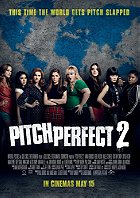
 0 comments,
0 comments, 